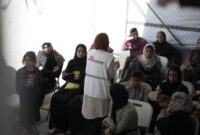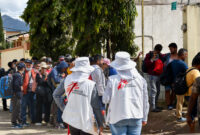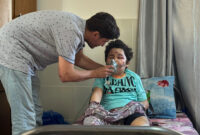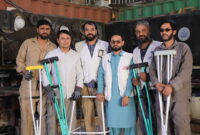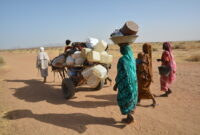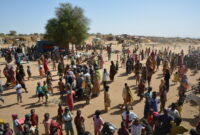South Africa: Thousands experiencing difficult access to water after KwaZulu-Natal’s devastating flash floods
Following the catastrophic flash flooding in the eThekwini region in South Africa’s KwaZulu-Natal Province, Doctors Without Borders/Médecins Sans Frontières (MSF) teams on the ground sees that vulnerable communities and health facilities are facing a crisis of clean water provision and adequate sanitation. Major district hospitals and dozens of health clinics are currently without water after floods damaged water supply systems.
40,000 people have been left homeless and a large number of displaced people have been sheltering for days in more than 20 schools, community halls and churches in the eThekwini region around Durban – few of which are electrified or have access to running water and adequate sanitation for the hundreds sheltering there. Many of the displaced people lost all their possessions including their chronic medications, especially for HIV, tuberculosis (TB), diabetes and hypertension, in the floods. They now struggle to access health services due to the scale of infrastructural damage, and steep challenges of daily survival.

The city remains in crisis 10 days after the storm, and it is now primarily a crisis of water and sanitation provision – to hospitals, clinics and communities. Failure to get this right could spell a deepening health crisis, characterized by water-borne disease,” says Dr Mani Thandrayen, medical team leader for MSF in Durban. “We have been supporting four of the shelters since the Easter weekend, helping to meet the immediate needs, of residents, which include food, water, cookware, blankets, mattresses and other basic items.”
Our response
MSF has distributed food and blankets, mattresses, cookware and basic hygiene products for 500 people and has provided kitchen appliances at community shelters.
To guard against disease outbreak in the aftermath of the floods, MSF has installed 25 portable toilets at three shelters, and provided four water tanks for potable water storage.

During the MSF team’s first community visits it was apparent that many traumatized people were reeling from loss of family members and their homes and are in need of counselling. Registered counsellors working for MSF, as well as several MSF doctors and nurses, have since joined mobile health clinics under the management of the provincial and municipality health departments. In the coming days these teams will aim to bring health services to all shelters across the municipality.
“We are living a daily tragedy – I am so overwhelmed I struggle to recall my own cellphone number,” says Nozipho Sithole, a resident of Ntuzuma community who lost her own home and is now helping to manage the shelter at Ntuzuma Community Hall.

MSF will continue providing punctual support to clinics and shelters needing water and sanitation, and is working with the authorities to explore the possibility of water treatment solutions and the drilling of community boreholes.
MSF in South Africa
MSF has had a long presence in South Africa and has run many projects focusing on HIV/TB, Sexual Gender Based Violence and COVID-19. In KwaZulu-Natal, MSF currently runs a TB project in Eshowe. The organization has also on several occasions stepped in to assist in the province during emergencies. During the week of unrest in KZN and Gauteng in July 2021, MSF provided emergency support to communities and health facilities affected by the violence, while during the peak of COVID-19, the organization provided oxygen concentrators on loan to a local hospital in Pietermaritzburg to ensure that severe COVID-19 patients were supported.

